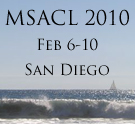Leon Coulier,TNO Quality of Life, Zeist, the Netherlands (presenting author)
Ivana Bobeldijk,TNO Quality of Life, Zeist, the Netherlands
Sabina Bijlsma,TNO Quality of Life, Zeist, the Netherlands
Marcel Stoop, Erasmus MC, Rotterdam, the Netherlands
Amos Attali, Solvay, Weesp, the Netherlands
Thomas Hankemeier, Leiden University, the Netherlands
Rainer Bischoff, University of Groningen, the Netherlands
Lutgarde Buydens, Radboud University, Nijmegen, the Netherlands
Sybren Wijmenga, Radboud University, Nijmegen, the Netherlands
Magnus Sjogren, Schering-Plough, Oss, the Netherlands
Rogier Hintzen, Erasmus MC, Rotterdam, the Netherlands
Theo Luider, Erasmus MC, Rotterdam, the Netherlands
Elwin Verheij, TNO Quality of Life, Zeist, the Netherlands |
|
CNS disorders are among the most important health problems of today from a medical and social-economic perspective. Current drug treatment in CNS disorders (if available) mainly focus on suppression of symptoms rather than cure. Cerebrospinal fluid (CSF) can be considered to be the best compartment for discovery and pharmacokinetics/pharmacodynamics (PK/PD) modeling of biomarkers that predict drug related exposure and efficacy in CNS disorders.
Metabolomics is one of the more recent approaches in biomarker discovery. Strangely enough only very few metabolomics studies have been reported in literature using CSF, although metabolite analysis using NMR has been applied for decades in the diagnosis of inborn-errors of metabolism.
Within the Top Institute Pharma-project "The CSF proteome/metabolome as primary biomarker compartment for CNS disorders" (D4-102) the aim is to develop, optimize and professionalize a high-quality biomarker discovery platform based on metabolomics and proteomics technology that can be applied to human/animal studies. Procedures for experimental design, sampling, storage, proteomics and metabolomics methodologies and data analysis within the system biology context will be optimized. Ultimately, optimized procedures for CSF biomarker discovery will allow translational biomarkers studies of metabolome to proteome, CSF to blood and animal to human.
In this presentation, the current status of the CSF metabolomics platform will be shown. Items that will be addressed include CSF stability, (increasing) CSF metabolite coverage and (reducing) CSF sample volumes. The practical aspects of the different analytical methods will be shown, i.e. oximation/silylation GC-MS, AccQTag LC-MS and free fatty acid/phospholipid LC-MS. The capability of the metabolomics platform will be demonstrated using a human CSF metabolomics study on subjects with the different stages of Multiple Sclerose and non-healthy controls. Emphasis will be put on the data-quality using internal standards, quality control samples and batch correction. Furthermore, results of multivariate data-analysis will be shown that was applied in order to classify the different study samples into the different disease states. |
|



